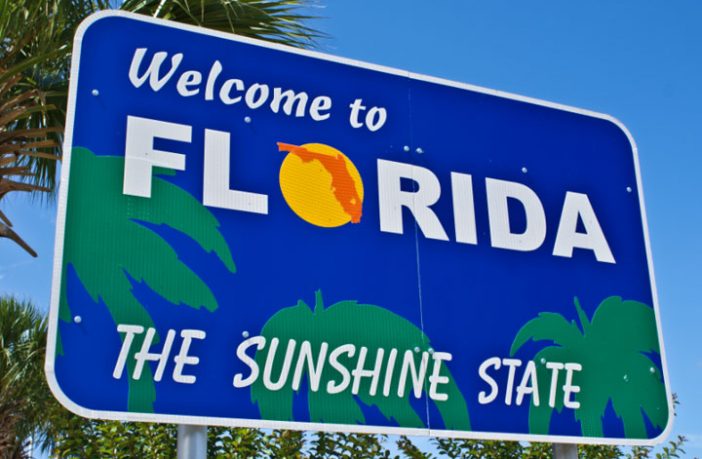A recent article in the Orlando Sentinel asks, “Governor’s race: Andrew Gillum, Ron DeSantis disagree on immigration — what could they do if elected?” Not all of its answers are wrong exactly, but they leave a lot out. Setting aside the issue of signing or vetoing legislation, what a Florida governor can do on this issue is limited, but can have a major impact nonetheless.
The powers of a Florida governor are restricted by the state constitution’s unique formal establishment of so-called “cabinet government.” The Cabinet in Florida consists of the other statewide elected officeholders, namely the attorney general, the chief financial officer, and the commissioner of agriculture & consumer services. Much of what governors can do unilaterally in many states requires a majority vote of the governor and Cabinet in Florida. For instance, a Florida governor could not, on his own, freely hand out pardons to convicted criminal aliens like Governor Jerry Brown in California or Governor Andrew Cuomo in New York have, in hopes of eliminating the immigration consequences of their convictions. In Florida, issuing a pardon requires the governor to obtain the votes of at least two of the three cabinet officers.
The article notably misses that a new governor could, however, take action on current Governor Rick Scott’s executive order mandating the use of E-Verify by state agencies and contractors, whether by rescinding it, or, by vote of the governor and Cabinet, expanding it to cover state agencies not under the governor’s sole direct control.
The article also incorrectly parrots the widespread conventional narrative that “[t]here are not currently any Florida cities or counties that follow ‘sanctuary’ policies[.]” In a May 2018 survey, FAIR identified 15 of them. And since then, the City of Orlando added itself to that number, which is particularly ironic that the Orlando Sentinel somehow seemed to miss it.
The article compounds that oversight with its related failure to recognize that refusing to honor detainers issued by Immigration and Customs Enforcement (ICE) is considered one of the most egregious and dangerous sanctuary policies by any practical definition. It does this even while saying that the decision whether to hold suspected illegal aliens on detainers isn’t up to the governor, but to the sheriffs of each of Florida’s 67 counties.
That’s true of people in county jails, of course. But it glaringly misses some of the most dangerous criminal aliens in the state, namely convicted felons who have already been sentenced to state prison. They’re in the custody of the Florida Department of Corrections (DOC), and DOC answers to the governor.
Because the governor alone, rather than governor and Cabinet, heads DOC, a governor who wanted to strengthen immigration enforcement could order DOC to enter into a 287(g) cooperative agreement with ICE, like Georgia’s and Massachusetts’s have. Conversely, an open-borders governor determined to undermine immigration enforcement could unilaterally impose dangerous sanctuary policies on DOC, by ordering the department not to honor all or at least most detainers, comparable to the policy in effect since 2014 under successive governors in Rhode Island.
On any given day, there are almost twice as many people in state prison in Florida than in the county jails. In its most recent annual report, DOC indicated it housed 97,794 inmates as of June 30, 2017. By contrast, the total average daily population of all the county jails was 55,038, also according to DOC.
It’s not known exactly what percentage of those inmates are illegal aliens, but according to the U.S. Department of Justice, roughly one in five prisoners in the federal system is a known or suspected illegal alien. In a state like Florida where the Census Bureau estimates that more than 21 percent of the population is foreign-born—as opposed to 13.7 percent nationwide—it’s reasonable to think the percentage of illegal aliens in state prison might be higher than in the federal system.
DOC released 30,833 inmates from state prison in Fiscal Year 2016-2017. So a governor ordering DOC to ignore detainers would mean setting probably several thousand illegal alien convicted felons loose each year as they completed their sentences, rather than allowing ICE to pick them up and deport them. Even the sanctuary state of California doesn’t go that far, and makes an exception in its sanctuary law for its own DOC.
In short, regardless of any new legislation, a new Florida governor on his own could enhance public safety in the Sunshine State by significantly expanding support for immigration enforcement. By contrast, a new governor bent on defying federal immigration law and shielding illegal aliens wouldn’t be able to do everything he wanted. But he would be able to do enough to cause some very serious harm to overall public safety.





2 Comments
We need E-Verify NOW!
The Governor Race is Tight in Florida
A lot is in the balance of tonite’s vote.